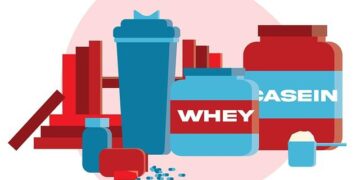Table of Contents
For years, I lived in a fog.
It wasn’t a dramatic, sudden event, but a slow, creeping haze that settled over my life, dimming the colors and muffling the sounds.
As a content director, my mind is my most valuable asset—my ability to connect ideas, find the right words, and build clear narratives is the foundation of my career.
But that foundation was crumbling.
I was perpetually exhausted, a bone-deep weariness that no amount of sleep could touch.1
It was more than just being tired; it was a profound lack of energy that made even simple tasks feel like climbing a mountain.
My work, once a source of joy, became a struggle.
I’d stare at a blank page, the words I needed just out of reach, lost in the cognitive mist.
I suffered from embarrassing memory lapses, forgetting names, appointments, and crucial details in meetings.
My colleagues were kind, but I could see the concern in their eyes.
This “brain fog” was terrifying; it felt like a thief was stealing my intellect, piece by piece.3
The physical symptoms were just as unsettling.
A strange, persistent tingling—a pins-and-needles sensation—would buzz in my hands and feet at odd hours.2
My muscles felt weak, and my balance was sometimes unsteady.5
Compounding it all was a psychological weight.
I became irritable, my mood swinging unpredictably, and a low-grade feeling of depression became my constant companion.2
I felt like a stranger in my own body, a ghost operating a machine that was slowly breaking down.
I did what anyone would do: I went to the doctor.
I went to several.
Blood tests were run, my lifestyle was scrutinized, and the verdict was always frustratingly vague.
“You’re just stressed.” “You’re working too hard.” “Maybe it’s just part of getting older.” While well-intentioned, this advice felt like a dismissal of the very real, debilitating symptoms I was experiencing.
I was eating a balanced diet, exercising, and trying to manage stress, yet I was fading.
The problem, I would later discover, was that my body was starving, even in the midst of plenty.
My search for answers had been focused on the what, when the real secret was hidden in the how.
The Unseen Thief: My Battle with a Fog I Couldn’t Name
The initial phase of my journey was a masterclass in frustration.
I was living a paradox: I was doing everything “right” according to conventional health wisdom, yet I felt fundamentally wrong.
The fatigue was the most dominant feature, an oppressive blanket that smothered my motivation and vitality.
It wasn’t the normal tiredness after a long day; it was a cellular-level exhaustion that was present from the moment I woke up.5
This physical depletion was the anchor for a host of other symptoms that created a vicious, self-perpetuating cycle.
The Pervasive Symptoms of an Invisible Illness
The cognitive decline was the most frightening aspect.
My “brain fog” wasn’t just a cute term for forgetfulness; it was a genuine cognitive impairment that affected my daily life.3
I would lose my train of thought mid-sentence, struggle to process complex information that was once easy for me, and find my memory failing in ways that felt premature and alarming.2
This mental confusion was often accompanied by a profound lack of motivation and feelings of depression, which makes perfect sense in hindsight; when your brain isn’t functioning properly, your mood is one of the first casualties.6
The physical manifestations were equally bizarre and concerning.
The numbness and tingling in my hands and feet, a classic sign of nerve problems known as paresthesia, was a constant, low-level hum of wrongness.3
At times, I’d experience muscle weakness or feel unsteady on my feet, as if the communication between my brain and my limbs was delayed or corrupted.4
My skin seemed to have a pale, yellowish tint, and my tongue would occasionally feel sore and inflamed—symptoms I now know are hallmarks of the specific type of anemia caused by B12 deficiency.2
The “Subclinical” Deficiency Trap
My initial medical consultations were dead ends because I was falling into a common clinical gap: the “subclinical” deficiency trap.
My blood tests weren’t flagging a critical, five-alarm deficiency.
However, research increasingly shows that symptoms like fatigue and cognitive issues can appear long before B12 levels drop to the point of triggering a classic diagnosis of megaloblastic anemia.4
One study on patients with fibromyalgia, for instance, found a significant link between fatigue and B12 levels under 400 ng/L, a number that many labs would still consider within the lower end of the “normal” range.7
The symptoms of B12 deficiency develop insidiously, often over several years, because the body maintains large stores of it.8
This slow onset means the changes can be easily mistaken for the normal effects of aging or stress.4
I wasn’t just imagining things; my body was giving me early warning signs of a systemic failure, but the standard diagnostic tools weren’t sensitive enough to catch it.
This experience revealed a crucial truth: there is a vast difference between being “not clinically deficient” and being “functionally optimal.” My body’s core operating systems were being compromised.
The poor oxygen transport from developing anemia was causing the fatigue.
The disruption in nerve maintenance was causing the tingling and brain fog.
And the combination of these physical failures was directly impacting my mental health.
My collection of seemingly random symptoms wasn’t random at all; it was a domino effect, a cascade of failures originating from a single, missing nutrient.
The “VIP Escort” Epiphany: Why My Body Was Starving for B12
Frustrated with the lack of answers, I became a detective of my own health.
I turned from cataloging my symptoms to investigating the fundamental biological mechanisms behind them.
My research led me down a rabbit hole into the world of vitamins, and specifically, to the largest and most structurally complex of them all: Vitamin B12, or cobalamin.1
It was here, in the dry, technical descriptions of digestive biochemistry, that I had my epiphany.
I realized my problem wasn’t a lack of B12 in my diet; it was a failure in the complex, fragile delivery system my body used to absorb it.
To make sense of this, I developed an analogy that changed everything for me: The “VIP Escort” system.
The Analogy: Getting B12 into the Club
Imagine your body is an exclusive nightclub, and Vitamin B12 is a very important celebrity guest.
For this VIP to get from the curb to the dance floor, a precise protocol must be followed.
- The Arrival with a Chaperone: When you eat B12-rich foods like meat, fish, or dairy, the B12 molecule doesn’t arrive alone. It’s tightly bound to a protein, like a VIP arriving with a security chaperone.8 It cannot enter the club while attached to this chaperone.
- The Bouncer (Stomach Acid): The first checkpoint is the club’s front door, guarded by a formidable bouncer: your stomach acid (hydrochloric acid). The bouncer’s only job is to separate the VIP (B12) from its chaperone (the protein).8 If the bouncer is weak or distracted, the B12 and its protein chaperone are turned away, never even making it inside.
- The Special Escort (Intrinsic Factor): Once freed from its protein, the VIP can’t just wander through the club alone. It must be met by a designated “VIP Escort,” a special glycoprotein called Intrinsic Factor (IF). This escort is produced by the very same cells in the stomach lining that produce the acid.5 The B12 molecule must bind with its Intrinsic Factor escort to proceed.
- The VIP Entrance (The Terminal Ileum): The B12-IF complex then travels together through the entire length of the small intestine to a single, exclusive, velvet-roped entrance at the very end: the terminal ileum. It is only at this specific location that the club’s staff (ileal receptors) recognize the B12-IF pair and usher them into the bloodstream for use by the body.9
Why the System Fails
This analogy instantly clarified why someone like me, who was eating plenty of B12, could still be starving for it.
The system is incredibly fragile, with multiple points of potential failure:
- A Weak Bouncer: As we age, our stomach’s ability to produce hydrochloric acid naturally declines.9 For many people over 50, the “bouncer” is simply not strong enough to effectively separate B12 from its protein chaperone. The VIP never gets past the front door.
- The Escort Doesn’t Show Up: Some people have an autoimmune condition called pernicious anemia, where their own immune system attacks and destroys the stomach cells that produce Intrinsic Factor.5 In this case, even if the B12 gets past the bouncer, its mandatory escort never arrives. With no IF, there is no absorption at the VIP entrance.
- Problems at the Venue: Digestive diseases like Crohn’s or celiac disease can cause inflammation and damage to the small intestine, including the terminal ileum where the VIP entrance is located.5 Gastric bypass surgeries that remove or bypass parts of the stomach or intestine also cripple the system by reducing the production of acid and Intrinsic Factor, or by removing the absorption site itself.5
This was my lightbulb moment.
The problem wasn’t the nutrient; it was the pathway.
I understood that even a standard B12 pill wasn’t a guaranteed solution.
While the B12 in a supplement isn’t attached to a protein (it gets to skip the “bouncer” step), it still requires the Intrinsic Factor escort to be absorbed through the main pathway.8
If my issue was low stomach acid or a subtle decline in IF production—common issues that often go undiagnosed—then swallowing a pill was like sending a VIP to a club where their escort was guaranteed to be a no-show.
The body does have a backup plan—a tiny amount of B12 (about 1-2%) can be absorbed through passive diffusion without IF—but this is incredibly inefficient.9
My body’s elegant, intricate system was broken, and I needed to find a way to bypass it entirely.
The Back-Door Key: How Liquid B12 Bypassed the Blockade and Changed Everything
Armed with my “VIP Escort” analogy, my mission became crystal clear.
I didn’t need a more potent B12 pill; I needed a secret back-door pass, a way to sneak the VIP directly into the club without dealing with the bouncer, the escort, or the designated entrance.
My research into alternative delivery methods led me to the elegant and powerful solution of sublingual absorption—taking B12 in a liquid or dissolvable form held under the tongue.
The Science of the “Back-Door Pass”
The area underneath your tongue is a biological marvel.
It’s lined with a very thin mucous membrane and is densely packed with capillaries—tiny blood vessels that are very close to the surface.9
When a substance like liquid vitamin B12 is placed there, it doesn’t need to be swallowed.
Instead, it is absorbed directly through this membrane and enters the bloodstream almost immediately.14
This sublingual route is a complete logistical workaround.
It bypasses the entire digestive gauntlet:
- It doesn’t need stomach acid.
- It doesn’t need Intrinsic Factor.
- It doesn’t need to travel to the small intestine.
It is a direct-to-bloodstream delivery system, the perfect solution for a body whose primary absorption pathway is compromised.12
It was the back-door key I had been searching for.
My Journey Back to Clarity
I decided to try a high-quality liquid B12 supplement, specifically one containing methylcobalamin, the active form of the vitamin.
The instructions were simple: place a dropperful under my tongue and hold it there for about 30 to 60 seconds before swallowing.
The change wasn’t like flipping a switch.
It was more like the slow, steady sunrise after a long night.
Within the first couple of weeks, the first thing I noticed was the lifting of the fog.
The cognitive haze began to dissipate, and thoughts became clearer, sharper.
The words I was searching for started coming back to me.
The oppressive, soul-crushing fatigue began to recede, replaced by a gentle but steady current of real energy.
The tingling in my hands and feet faded away.
This wasn’t a placebo effect.
This was the result of finally providing my brain, my nerves, and my blood cells with the essential nutrient they had been desperately craving, delivered in a form my body could finally use.
It was a profound and emotional experience to feel myself coming back online, to feel like “me” again.
Navigating the Nuances of the Evidence
In sharing my story, it’s important to address the scientific literature with honesty.
If you look at large-scale studies and meta-analyses, many conclude that high-dose oral B12 pills (e.g., 1000-2000 mcg) can be just as effective as sublingual forms or even intramuscular injections at normalizing blood levels over time.15
This seems counterintuitive, but it’s because those massive oral doses can eventually push enough B12 through the highly inefficient passive diffusion pathway (that 1-2% backup system) to raise blood levels.12
However, this brings up a crucial distinction between efficacy and efficiency.
Yes, you can use a firehose to eventually get some water through a keyhole, but using a key is far more efficient and reliable.
For an individual with a compromised absorption system, the sublingual route is the key.
It’s a more targeted, logical, and mechanistically sound solution.
Why flood a broken system with a massive dose and simply hope for the best, when you can use a direct route that guarantees delivery?
Furthermore, some research does suggest a direct advantage for the sublingual route.
One study found it to be even more effective than intramuscular injections in restoring B12 levels.13
It is also noted as being particularly beneficial for those with pernicious anemia who completely lack Intrinsic Factor.13
Ultimately, the choice of supplement is also about patient experience.
Liquid B12 is non-invasive, convenient, and puts the power of treatment directly into the hands of the individual—a welcome alternative to the pain and inconvenience of regular injections.18
For me, it was the key that unlocked the door back to my own life.
Your Complete Field Guide to Vitamin B12 Supplementation
My journey taught me that understanding your own biology is the first step toward true wellness.
Now, I want to transition from being the storyteller to being your guide, equipping you with the practical, science-backed information you need to navigate the world of Vitamin B12 and make the best choices for your health.
Who Needs to Pay Closest Attention?
While everyone needs B12, certain groups have a much higher risk of deficiency, often due to failures in the “VIP Escort” absorption system.
If you fall into one of these categories, proactive monitoring and supplementation are critical.
- Older Adults (50+): As we age, production of stomach acid declines, weakening the “bouncer” needed to free B12 from food. This condition, called atrophic gastritis, affects a significant portion of older adults, making them highly susceptible to deficiency.4
- Vegans and Vegetarians: Vitamin B12 is found almost exclusively in animal products like meat, dairy, and eggs. Plant foods do not naturally contain B12 unless they are fortified.8 For those on a plant-based diet, supplementation is not optional; it is essential for long-term health.11
- Individuals with Digestive Conditions: Chronic diseases like Crohn’s and celiac disease cause inflammation that can damage the stomach lining (affecting acid and IF production) or the terminal ileum (the absorption site).5
- Those with a History of Gastric Surgery: Procedures like gastric bypass or the removal of parts of the stomach or intestine permanently alter the anatomy required for B12 absorption.5
- People with Pernicious Anemia: This autoimmune disease, where the body attacks the cells that make Intrinsic Factor, makes it impossible to absorb B12 through the primary pathway.5
- Pregnant and Breastfeeding Women: The need for B12 increases during pregnancy to support fetal development. A deficiency in the mother can lead to severe and irreversible neurological damage or birth defects in the infant, making it especially critical for plant-based mothers to supplement.5
- Individuals on Certain Medications: Some common medications, such as metformin (for diabetes) and long-term use of proton pump inhibitors (for acid reflux), can interfere with B12 absorption.11
Decoding the Forms: Methylcobalamin vs. Cyanocobalamin
When you look at a B12 supplement label, you’ll typically see one of two forms.
Understanding the difference can help you make a more informed choice.
- Cyanocobalamin: This is a synthetic, very stable, and cost-effective form of B12. It’s the most common form found in supplements and fortified foods and has been used in the majority of clinical studies.8 To be used by the body, the “cyano-” group (a cyanide molecule) must be cleaved off, and the cobalamin is then converted into one of the active forms.
- Methylcobalamin: This is one of the two primary active, naturally occurring forms of B12 in the human body (the other being adenosylcobalamin). Because it is already in an active state, it doesn’t require the conversion step that cyanocobalamin does. While large-scale research has not conclusively proven one supplemental form is superior to the other for raising overall blood levels 8, some evidence suggests methylcobalamin may be more effective in certain contexts.21 Logically, using a form that is already active and ready for the body to use is an elegant choice, and it was the one I personally made.
Head-to-Head Comparison: Choosing Your B12 Delivery System
The most critical decision is not just the form of B12, but the delivery system.
Here is a clear comparison to help you choose the right method for your specific needs.
| Feature | Oral Pill / Capsule | Sublingual (Liquid/Spray/Tablet) | Intramuscular (IM) Injection |
| Absorption Mechanism | Relies on the full digestive process: stomach acid to free B12 from food protein (if applicable), then Intrinsic Factor to escort it for absorption in the small intestine.8 | Bypasses the digestive system. Absorbed directly into the bloodstream through the rich network of capillaries under the tongue.9 | Injected directly into muscle tissue, from where it is absorbed into the bloodstream. Bypasses digestion entirely.12 |
| Pros | Widely available, generally the least expensive option, familiar method for most people.22 | Fast-acting. Ideal for those with digestive or absorption issues (e.g., low stomach acid, lack of IF). Good for people who dislike swallowing pills.9 | Considered the gold standard for severe, clinically diagnosed deficiency or neurological symptoms. Ensures 100% of the dose is available to the body.12 |
| Cons | Very low absorption rate (1-2%) without a fully functional digestive pathway. May be ineffective for at-risk groups even at high doses.9 | Can be slightly more expensive. Requires holding under the tongue for 30-60 seconds without swallowing for best effect.13 | Requires a prescription and administration by a healthcare professional. Can cause pain/discomfort at the injection site. Inconvenient and costly.18 |
| Best For | General B12 maintenance in healthy young individuals with no known absorption issues or risk factors. | Individuals with known or suspected absorption problems (older adults, digestive conditions), vegans/vegetarians, and those seeking a reliable, non-invasive option. | Patients with pernicious anemia, severe deficiency with neurological involvement, or confirmed malabsorption syndromes where rapid replenishment is critical.5 |
A Note on Dosage and Safety
The Recommended Daily Amount (RDA) for adults is just 2.4 micrograms (mcg).1
However, this is the amount needed to prevent classic deficiency diseases in healthy people.
For correcting an existing deficiency or for those with absorption issues, therapeutic doses are much higher, typically ranging from 500 mcg to 2,000 mcg daily.8
Fortunately, Vitamin B12 is a water-soluble vitamin.
Unlike fat-soluble vitamins that can build up in the body, your system absorbs only as much B12 as it needs, and any excess is simply passed through your urine.19
This makes high-dose supplementation generally very safe.
While extremely high doses might cause mild side effects like headache or nausea in some individuals, these are rare.19
As always, it is best to consult with a healthcare professional to determine the right dosage for your specific situation.6
The Full Spectrum of B12’s Power: More Than Just an Energy Vitamin
My personal journey began with a desperate need to overcome fatigue and brain fog.
But what I discovered along the way is that Vitamin B12 is not a niche “energy vitamin.” It is a foundational, infrastructural nutrient that is essential for the healthy functioning of your body’s most critical operating systems.
Its benefits extend far beyond simply feeling more awake.
The Foundation of Healthy Blood and Energy
The fatigue I experienced was a direct result of B12’s primary role in hematopoiesis, or the creation of red blood cells.
B12 is a crucial ingredient in the production of healthy, round, and efficient red blood cells in your bone marrow.20
When B12 is deficient, the body produces red blood cells that are large, misshapen, and oval—a condition called megaloblastic anemia.5
These defective cells are unable to move properly from the bone marrow into the bloodstream and, more importantly, are poor carriers of oxygen.20
When your vital organs and tissues are deprived of adequate oxygen, the result is profound fatigue, weakness, and shortness of breath.
Ensuring optimal B12 levels is fundamental to maintaining the very system that delivers energy throughout your body.
The Guardian of the Nervous System
Perhaps B12’s most critical role is as the guardian of your entire nervous system, from your brain to the tips of your toes.
It is essential for the synthesis and maintenance of the myelin sheath, the protective, fatty coating that insulates your nerve fibers and allows for rapid, clear communication between them.1
A B12 deficiency can cause this sheath to degrade, leading to the neurological symptoms I experienced: numbness, tingling, balance problems, and cognitive decline.2
If left untreated for too long, this nerve damage can become irreversible, which is why it is so critical to address a deficiency as soon as it is suspected.1
Supporting Mood and Mental Well-being
The link between B12 and mental health is powerful and well-documented.
B vitamins, including B12, play a vital role in the metabolic pathways that produce neurotransmitters—brain chemicals like serotonin and dopamine that regulate mood.6
It’s no surprise, then, that low blood levels of B12 are consistently linked to an increased risk of depression and other mood disturbances.11
While B12 is not a cure for depression, ensuring adequate levels is a foundational step in supporting brain health and emotional resilience.
Correcting my deficiency didn’t just clear my fog; it helped stabilize my mood and lift the psychological weight I had been carrying.
Other Key Areas of Support
The influence of this master vitamin doesn’t stop there.
While research is ongoing, evidence suggests that maintaining optimal B12 levels is important for:
- Bone Health: Some studies have noted a link between low B12 levels and decreased bone mineral density, which can increase the risk of osteoporosis and fractures over time.20
- Eye Health: Adequate B12 intake may help reduce the risk of age-related macular degeneration, a leading cause of vision loss in older adults.20
- A Healthy Pregnancy: B12 is absolutely crucial for the proper development of the fetal brain and nervous system. A deficiency during pregnancy significantly increases the risk of major birth defects, such as neural tube defects.5
It is important, however, to debunk a common myth.
For individuals who already have sufficient B12 levels, taking extra B12 will not provide an additional energy boost or enhance athletic performance.19
B12 is a corrective nutrient, not a performance enhancer.
Its magic lies in restoring function to a system that is broken, not in supercharging one that is already working well.
Conclusion: From Fog to Focus—A Journey Back to Myself
Looking back, the person I was just a few years ago feels like a distant memory.
The woman living in a perpetual fog, struggling with exhaustion and self-doubt, has been replaced by someone with clarity, energy, and a renewed sense of control over her own well-being.
My journey through the labyrinth of B12 deficiency was challenging, but it led me to a profound and empowering truth: true health is not just about what you put into your body, but about understanding how your body uses it.
The “VIP Escort” analogy was more than just a clever mental model; it was the key that unlocked the mystery of my illness.
It taught me that my body wasn’t failing me out of spite; it was operating on a broken logistical system.
The solution wasn’t to shout louder at the front door by taking more pills; it was to find the secret back-door entrance that liquid, sublingual B12 provided.
My story is not unique.
Millions of people, especially as they age, suffer from unexplained fatigue, brain fog, and mood changes, often dismissed as the unavoidable consequences of a busy life or growing older.
But for many, the root cause may be a hidden, mechanical failure in their ability to absorb this one essential vitamin.
I share my journey not as medical advice, but as a map.
It is a map that I hope can guide you to ask deeper questions about your own health.
If you recognize yourself in my story—if you are wrestling with a fog you can’t name or a weariness you can’t shake—I urge you to become a detective of your own health.
Listen to the subtle signals your body is sending.
Don’t be satisfied with surface-level answers.
Armed with the knowledge of how B12 absorption works, you can have a more informed conversation with your healthcare provider.
You can discuss not just your symptoms, but the potential underlying mechanisms.
You can ask about testing your B12 levels and, more importantly, about choosing a supplementation method that makes sense for your unique biology.6
The journey from fog to focus was, for me, a journey back to myself.
It was a rediscovery of the mental sharpness, physical vitality, and emotional balance that I thought I had lost for good.
My deepest hope is that by sharing this map, I can help you find your way back, too.
Works cited
- Vitamin B12 benefits, food sources, deficiency symptoms, and more – Medical News Today, accessed on August 8, 2025, https://www.medicalnewstoday.com/articles/219822
- Vitamin B12 Deficiency: Symptoms, Causes & Treatment – Cleveland Clinic, accessed on August 8, 2025, https://my.clevelandclinic.org/health/diseases/22831-vitamin-b12-deficiency
- What to Know About Vitamin B12 Dosage for Older Adults – WebMD, accessed on August 8, 2025, https://www.webmd.com/healthy-aging/what-to-know-about-vitamin-b12-dosage-for-older-adults?ref=seriousaging.com
- TUESDAY Q & A: Vitamin B-12 deficiency more common with increasing age, accessed on August 8, 2025, https://newsnetwork.mayoclinic.org/discussion/tuesday-q-a-vitamin-b-12-deficiency-more-common-with-increasing-age/
- Vitamin deficiency anemia – Symptoms & causes – Mayo Clinic, accessed on August 8, 2025, https://www.mayoclinic.org/diseases-conditions/vitamin-deficiency-anemia/symptoms-causes/syc-20355025
- Vitamin B-12 and depression: Are they related? – Mayo Clinic, accessed on August 8, 2025, https://www.mayoclinic.org/diseases-conditions/depression/expert-answers/vitamin-b12-and-depression/faq-20058077
- Association of Vitamin B12, Vitamin D, and Thyroid-Stimulating Hormone With Fatigue and Neurologic Symptoms in Patients With Fibromyalgia, accessed on August 8, 2025, https://pmc.ncbi.nlm.nih.gov/articles/PMC9352804/
- Vitamin B12 – Consumer – NIH Office of Dietary Supplements, accessed on August 8, 2025, https://ods.od.nih.gov/factsheets/VitaminB12-Consumer/
- Why is B12 Difficult to Absorb and Do Oral B12 Sprays Work? – News-Medical.net, accessed on August 8, 2025, https://www.news-medical.net/health/Why-is-B12-Difficult-to-Absorb-and-Do-Oral-B12-Sprays-Work.aspx
- Route and Type of Formulation Administered Influences the Absorption and Disposition of Vitamin B12 Levels in Serum, accessed on August 8, 2025, https://pmc.ncbi.nlm.nih.gov/articles/PMC5872098/
- Benefits, Side Effects, and Dosage of B-Complex Vitamins – Healthline, accessed on August 8, 2025, https://www.healthline.com/nutrition/vitamin-b-complex
- Inherited and acquired vitamin B12 deficiencies: Which administration route to choose for supplementation?, accessed on August 8, 2025, https://pmc.ncbi.nlm.nih.gov/articles/PMC9559827/
- Sublingual Vitamin B12: Is Taking Supplements under Your Tongue More Effective? | Ro, accessed on August 8, 2025, https://ro.co/supplements/sublingual-b12/
- What You Need to Know about Sublingual Vitamins | Psychology Today, accessed on August 8, 2025, https://www.psychologytoday.com/us/blog/food-junkie/201810/what-you-need-to-know-about-sublingual-vitamins
- How does sublingual Vitamin B12 compare to oral Vitamin B12 supplementation in elderly individuals? – Consensus, accessed on August 8, 2025, https://consensus.app/search/how-does-sublingual-vitamin-b12-compare-to-oral-vi/80SEFHQ8QfuAfPjlgvckkw/
- Efficacy of different routes of vitamin B12 supplementation for the treatment of patients with vitamin B12 deficiency: A systematic review and network meta-analysis – PubMed, accessed on August 8, 2025, https://pubmed.ncbi.nlm.nih.gov/38231320/
- Efficacy of different routes of vitamin B12 supplementation for the treatment of patients with vitamin B12 deficiency: A systematic review and network meta-analysis, accessed on August 8, 2025, https://pmc.ncbi.nlm.nih.gov/articles/PMC11128391/
- Oral versus intramuscular administration of vitamin B12 for vitamin B12 deficiency in primary care: a pragmatic, randomised, non-inferiority clinical trial (OB12) | BMJ Open, accessed on August 8, 2025, https://bmjopen.bmj.com/content/10/8/e033687
- Vitamin B-12 – Mayo Clinic, accessed on August 8, 2025, https://www.mayoclinic.org/drugs-supplements-vitamin-b12/art-20363663
- Health Benefits of Vitamin B12, Based on Science – Healthline, accessed on August 8, 2025, https://www.healthline.com/nutrition/vitamin-b12-benefits
- Comparison of Sublingual and Intramuscular Administration of Vitamin B12 for the Treatment of Vitamin B12 Deficiency in Children – SciELO México, accessed on August 8, 2025, https://www.scielo.org.mx/scielo.php?script=sci_arttext&pid=S0034-83762020000600380
- Oral vitamin B12 versus intramuscular vitamin B12 for vitamin B12 deficiency – PMC – PubMed Central, accessed on August 8, 2025, https://pmc.ncbi.nlm.nih.gov/articles/PMC6494183/
- Pharmacokinetics of vitamin dosage forms: A complete overview – PMC – PubMed Central, accessed on August 8, 2025, https://pmc.ncbi.nlm.nih.gov/articles/PMC10804103/






